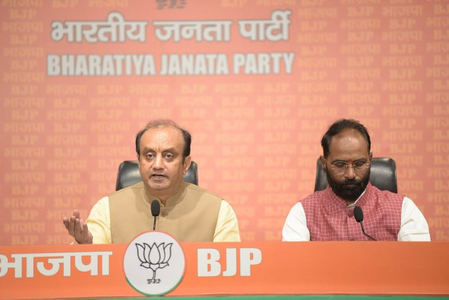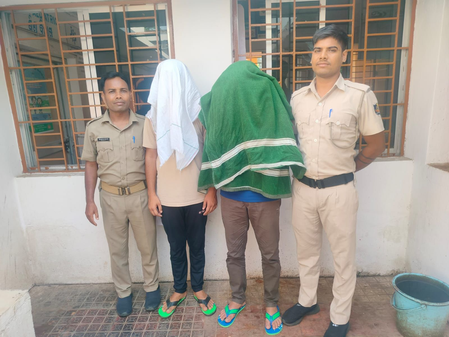
New Delhi, May 5 (IANS) A Supreme Court bench, headed by Chief Justice of India (CJI) Sanjiv Khanna, on Monday directed that the clutch of petitions challenging the constitutional validity of the Waqf (Amendment) Act, 2025, be listed before the Justice B.R. Gavai-led Bench for further hearing.
At the outset, CJI Khanna said that the Bench, also comprising Justices Sanjay Kumar and K.V. Viswanathan, has gone through the pleadings, though not in detail, and did not intend to reserve its judgment at the interim stage in view of his impending retirement.
“We will post it before the bench of Justice Gavai on Wednesday or Thursday,” the bench said.
CJI Khanna is set to demit the highest judicial office of the country on May 13 on the attainment of the age of 65 years. After his retirement, Justice Gavai, presently the senior-most puisne judge of the apex court, will be sworn in as the 52nd CJI.
In the previous hearing, the top court granted a week’s time to the Centre and state governments and the Waqf Boards to file their preliminary reply.
It decided to treat five writ petitions as lead cases and said that other pleas will be treated as intervention applications, apart from ordering the registry to rename the cause titles of the proceedings as “In Re: The Waqf (Amendment) Act, 2025”.
During the course of the hearing, the Union government assured the Supreme Court that it would not de-notify provisions related to ‘waqf by user’ or include non-Muslim members in the Waqf Board.
Posting the matter for further hearing on May 5, the apex court had then said that the hearing fixed on the next date will be a preliminary hearing and, if required, interim orders will be passed.
In its preliminary affidavit, the Centre said that it brought amendments to prevent abuse of waqf legislation, which resulted in the encroachment of government properties, apart from ensuring that the Waqf Boards in the country are properly administered and function with transparency.
“It is submitted that there have been reported misuse of waqf provisions to encroach on private properties and government properties. It is really shocking to know that after the amendment brought in the year 2013, there is a 116 per cent rise in auqaf area,” the Union Ministry of Minority Affairs said.
The Centre, in its reply document filed before the top court, said that it was found that most of the Waqf Boards have been functioning in the “most non-transparent manner” and have either not uploaded the details in the public domain or have uploaded partial details. It said that under the old regime, due to the absence of adequate safeguards, government properties and even private properties were declared as waqf properties.
“The provisions of Sections 3A, 3B, and 3C take care of the said situation which has been prevailing since several decades. It is submitted that there are startling examples whereby the government lands or even the private lands were declared as waqf properties,” it said in the affidavit.
The Union government said that the Waqf (Amendment) Act, 2025, was passed with the objective of modernising the management of waqf properties in India through transparent, efficient and inclusive measures. It argued that the reforms introduced are directed solely at the secular and administrative aspects of waqf institutions – such as property management, record-keeping, and governance structures – without impinging upon any essential religious practices or tenets of the Islamic faith.
On April 28, the Supreme Court refused to entertain a fresh petition challenging the amendments to the Waqf Act, 1995. A CJI Khanna-led Bench told the petitioner that it cannot deal with hundreds of petitions on the same issue and that the petitioner may choose to file an intervention application in the pleas challenging the Waqf (Amendment) Act, 2025, if so advised.
–IANS
pds/vd






